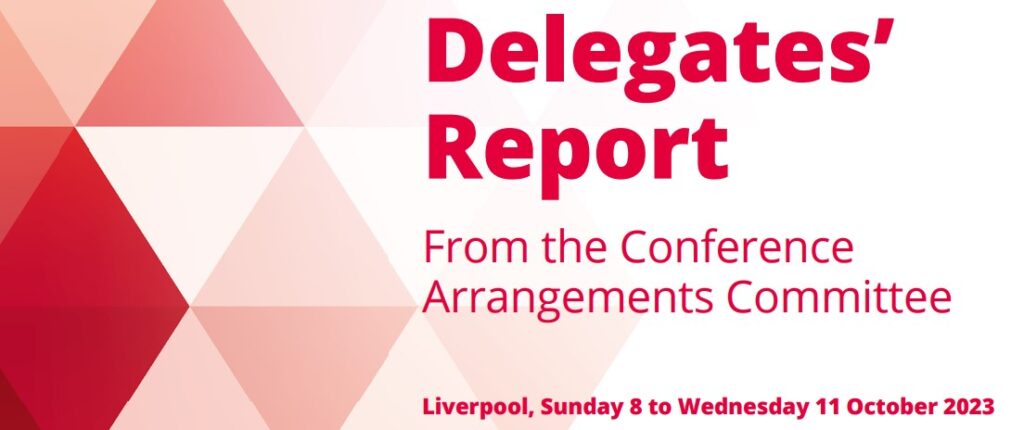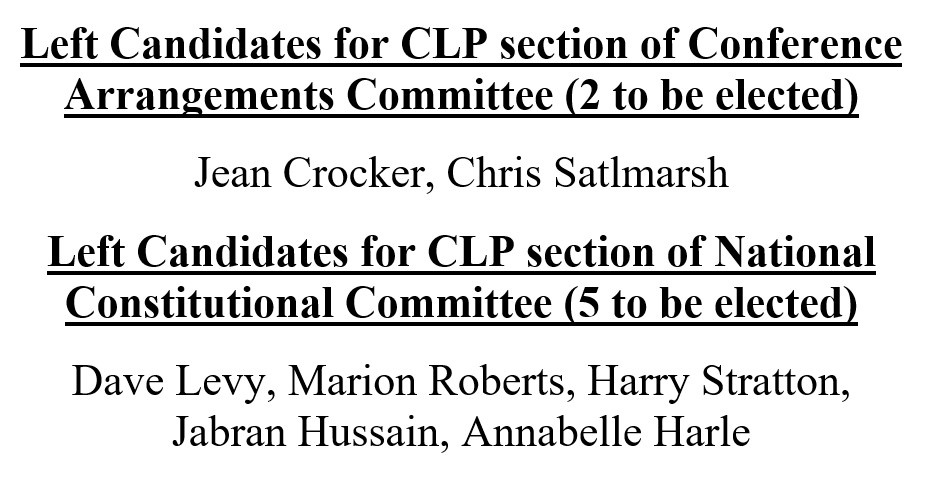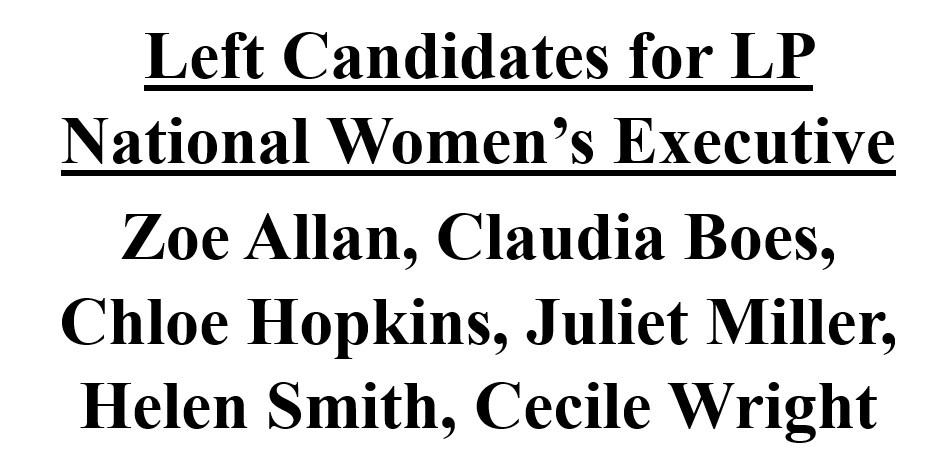By Ray Goodspeed, Leyton and Wanstead CLP delegate
This weekend sees the start of the Labour Party National Conference, from Sunday to Wednesday. Conference is formally the sovereign body of the party, with the National Executive Committee running the party in between conferences, but as many long-time members know, this was often a purely symbolic sovereignty. Yet this conference is set to be come the last to have even that nominal authority.
Throughout Labour history past leaders have ignored conference resolutions, even though those supported by 60% of delegates were supposed to be automatically included in the manifesto. Under Corbyn, this changed somewhat, but even he was not averse to quietly stepping away from motions that were inconvenient.
In practice, manifestos are drawn up by the Labour Cabinet (or Shadow Cabinet) and leading trade union figures in the so-called ‘Clause V meetings’ held just before an election campaign, where the manifesto that emerged often bears little resemblance to conference decisions.
Conference is supposed to give local party members, trade unions and other affiliated organisation the right to move a political motion on any subject and, if conference democratically decides to prioritise it for discussion, and it receives majority support among a balance of delegates from local Labour parties or trade unions etc, it becomes the policy of the party.

Imperfect as the system has been, conference has been able to provide a platform for the opinions and concerns of local party members and trade unionists. During the Corbyn years especially, when ordinary workers came to the rostrum to talk about problems in health, social care, education, housing and so on, it was like listening to the authentic voice of the working class.
Under Corbyn, twenty different policy areas were chosen by ballot of CLP and trade union/affiliated delegates, but then reduced under Starmer to twelve, so as to allow more time for Shadow ministers to speak and various other bits of fluff.
NPF – complex, opaque and labyrinthine
The Starmer leadership and those of his supporters who control the National Executive Committee are now planning to snuff out even this limited exercise in party democracy. They want the policy-making process to be limited to the complex, opaque and labyrinthine National Policy Forum (NPF) process, which, though nominally including representatives from party members and unions, is manipulated to fit into the agenda of the leadership, with the resulting documents drawn up by party staffers who owe their positions to that leadership.

The convoluted democracy of the NPF is remote from ordinary Party members. [See article here on its workings]. In fact most members, and even hard-working local activists, are unaware of what the NPF is, when it meets, how it reaches its decisions or to whom it is ultimately responsible.
In the past the resulting bland, glossy NPF documents that were presented to conference might have had ‘sections’ referred back by conference for further consideration. But even that will no longer be possible at this conference. So the vote will simply be to accept or reject a policy document covering many different detailed policy areas – take it or leave it.
Any resolutions passed by this conference will be buried in the NPF process, even though they have stated that this process has been “completed”. They can then be weakened, indefinitely postponed, quietly dropped or simply ignored altogether.
Sweeping changes to the future of Labour conference
But the NEC proposals for the future role of conference are even more sweeping and draconian. If the right wing get their way, future conferences will only be able to discuss “contemporary” motions on subjects “not substantially addressed by reports of the NEC or National Policy Forum”! That could rule out virtually any subject that it did not suit the leadership to discuss
This is rolling back all the advances in party democracy since the Blair years, and turning the conference into a speechifying rubber stamp for decisions taken elsewhere, and a ‘rally’ for Shadow Ministers in their keynote speeches.
These proposals have infuriated wide sections of party members. The “Open Labour” faction which tacks between left and right in the party and is represented by Ann Black on the NEC, rejects them. As Open Labour co-chair Amen Tesfay said: “A party that can’t listen to its own members at conference seems far too fragile and uncertain for a party which is leading in the polls. Trying to turn conference into a happy-clappy performing seal show isn’t the direction of a modern, vibrant, democratic party”
These proposed changes were not even presented to the NEC until September, just a couple of weeks before conference. At the same time, any local CLP resolutions on changing the rules can now only be discussed at the conference the following year. My own CLP submitted a rule change back in June, which will now only be discussed (if at all!) in September or October 2024!

National Women’s Conference
In addition, this year, the National Women’s conference is limited to just one day – the Saturday before the main conference. Previously, the women’s conference has been a stand-alone two-day conference at a different time of year. The shortage of time means that three policy areas can be chosen – a totally inadequate response to the multiple challenges facing working-class women.
The main left organisations, the Campaign for Labour Party Democracy and what is left of Momentum are recommending that Abortion Rights, Child Poverty and the Public Order Act are prioritised, and Left Horizons accept the need for a united front on the vote. But in reality, any choice limited to three items can only be an insult to women members.
Changes to CLP executives
Further proposals concern the Executive Committees of every local CLP. Currently, each CLP has 14 officers on the Executive, who may also be delegates from branches. These include representatives from young members (under 27), BAME members, disabled members, and LGBT+ members. All these posts are to be swept aside, along with the Policy Officer post.
Only six elected, voting, officer posts will be allowed – Chair, Secretary, Treasurer, Vice-Chair for Membership and Campaigns (!), Women’s Officer and Trade Union Liaison Officer (TULO). The last of these posts will be elected only by trade union delegates to a local CLP General Committee.
Apparently, according to a “Labour Party Source” who spoke to Labour List, “A requirement to have a big group of executive officers with voting rights politicises certain roles, so instead of going to the most suited person, people get elected on political slates.”

Perish the thought that positions in a political party should be elected on the basis of politics! The leadership clearly want to exclude those inconvenient minorities who might cause trouble by insisting on their rights, in a party that Martin Forde, in his largely ignored report, identified as having a serious problem of anti-black racism and Islamophobia.
Or a party rowing back on its policies to support the rights of trans people. Or a party offering less and less to those who live on benefit payments, including a large number of disabled people, who have suffered the frontal assault on their living standards under the Tories, yet are not seeing any firm commitment from Labour to reverse such measures.
Or young people whose lives have been blighted by a capitalist system that Labour appears to have no intention of resisting, let alone ending. Or perhaps they just have not got enough people enthused by their own politics who are prepared to stand for more than a handful of positions!
Electing the TULO from among local trade union delegates is not a problem in principle, of course, but the trade unions need to properly turn their attention to organising in the party at every level, local regional and national in order to commit the party to stand for the interests of working people. Too often there are hardly any active members of CLP general committees from local trade union branches. Few branches are affiliated and those that are, often neglect to send any delegates. Moreover, many CLPs still meet as ‘full member’ meetings, and it is not clear how, if at all, a Trade Union Liaison Officer can be elected.
Right wing nervous as members support independent candidates
One final change is closing a supposed loophole, specifying that support for “independent” candidates (ie not just other parties) is a reason for automatic expulsion. In reality, that has always been the case, but how nervous they must be to bother to move a mostly pointless rule change designed to prevent their own members from supporting other candidates.
All of these measures together do not signify that the Labour leadership is confident in their ideas and policies (such as they are). Such desperate attempts to win by purely undemocratic, bureaucratic methods indicates their own lack of faith in their ideas to persuade and convince their own supporters. They are worried for the future and want to hamstring the conference in such a way as to mute or forestall any opposition that will almost certainly develop in the future.
Given that these proposals sailed through the NEC with support from the big right-wing trade unions, the MP and councillor reps and the right-wing minority of CLP reps, they are likely to be adopted by this year’s conference. It will be more crystal-clear evidence that Labour’s right wing are devoted, above all else, to preventing the Labour Party from becoming a channel for working class discontent, once a Starmer government is elected. Starmer’s task was to make Labour safe again as a B-team, to be stuck onto the pitch while the main political representatives of capitalism, the Tory Party, get a rest.
The left MPs in the Socialist Campaign Group rightly condemn these measures, but they still too often express themselves in the language of “unity”. They need to understand very clearly that the right do not want unity under any circumstances. They want socialist ideas totally shut out access to mainstream political life.
They are currently in the ascendant, but given the storms that are coming – economic crisis, climate catastrophe, crises in health and education services, in housing, levels of poverty and destitution unknown in living memory – any attempt by a Labour government to continue “business as usual” will be met by a ferocious response by all those yearning for an end to the Tories and wanting a Labour government to actual do something to improve their lives.
Working class struggle and resistance cannot be contained by administrative sleight of hand, bans, and constitutional fiddles. If one road is blocked, workers will find another in pursuit of their vital interests. Trade unions, in particular, will be under enormous pressure to fight back and this is bound to be reflected to some degree inside the Labour Party.
We will see how much opposition there is this year to the domination and stage-management by the right wing. There will still be some, but it is likely that the right will dominate the big unions and most CLPs. It may not be a good conference for the left, but whereas the right wing fear the future, we do not.



